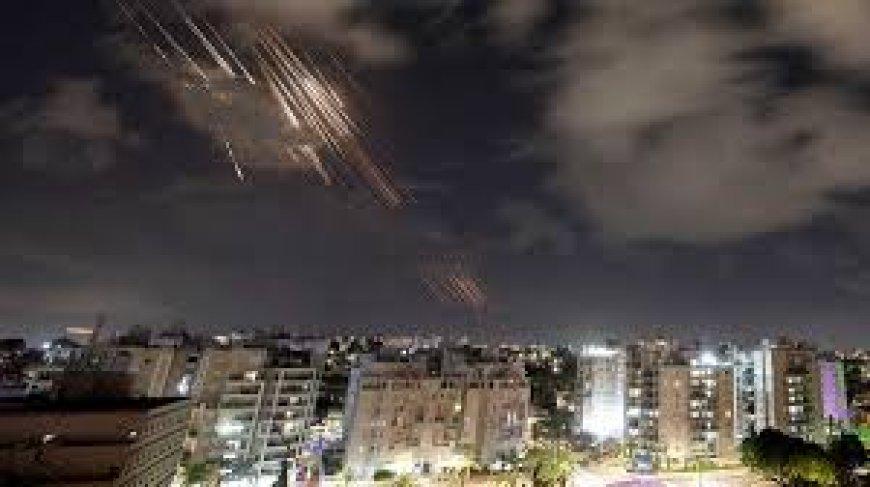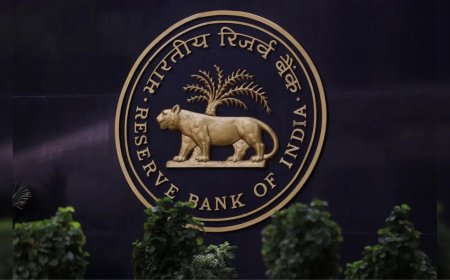Israel-Iran conflict is spiraling out of control, putting energy supply chains at risk
The escalating Israel-Iran conflict is disrupting global oil markets and threatening the safety of vital energy supply chains. Experts warn of rising inflation and prolonged regional instability.

Tel Aviv/Tehran – June 17, 2025:
The long-standing hostility between Israel and Iran has escalated into a dangerous new phase, triggering widespread concerns across diplomatic, economic, and energy sectors. Military strikes, proxy attacks, and cyber warfare have intensified since early June, threatening to destabilize the broader Middle East and imperil global energy supply chains already strained by geopolitical friction.
As both countries engage in increasingly aggressive posturing, energy analysts and global markets are warning of potentially severe disruptions in oil flow, especially through the Strait of Hormuz—a critical chokepoint for nearly 20% of global oil shipments.
A Conflict No Longer Contained
Israel's latest airstrikes on suspected Iranian nuclear and military facilities in Syria, paired with Tehran’s retaliation via Hezbollah and Houthi proxies, signal that this conflict is no longer limited to covert operations and diplomatic exchanges. Last week, an Iranian ballistic missile narrowly missed Israel's Dimona nuclear facility, escalating fears of an all-out regional war.
“In previous years, Israel-Iran tensions played out largely in the shadows, but what we’re witnessing now is a full-blown kinetic escalation,” said Dr. Shira Efron, Senior Fellow at the Institute for National Security Studies (INSS). “The risk is no longer hypothetical.”
Strait of Hormuz in the Crosshairs
At the center of global anxiety is the Strait of Hormuz, the narrow passage connecting the Persian Gulf with the Arabian Sea. Iran has repeatedly threatened to block the strait in retaliation for Israeli or Western aggression—a move that would significantly impact energy supplies to Asia, Europe, and beyond.
“Even the perception of conflict in that region creates volatility in oil markets,” noted Aditya Menon, Chief Energy Analyst at PetroVista. “If Iran makes good on its threat to restrict shipping through Hormuz, oil prices could skyrocket past $120 per barrel.”
On June 15, multiple oil tankers operating near the strait reported GPS jamming and drone flyovers, raising alarms about the safety of the route. Lloyd’s of London has already issued a red alert for insurers covering ships in the region.
Oil Markets React with Volatility
Brent crude surged over 6% last week, closing at $113 a barrel on Friday, amid supply fears. The conflict has reignited fears of a 1970s-style oil crisis, particularly as the global economy attempts to shake off the inflationary effects of the COVID-19 pandemic and the Ukraine war.
“We’re entering a phase of renewed commodity-driven inflation,” said Monica Hayes, a macro strategist at GlobalVest Capital. “Energy-importing nations in Asia and Europe are especially vulnerable.”
Major economies like India, China, and Japan—heavily reliant on Gulf oil—have started activating strategic reserves and engaging in diplomatic backchannels to stabilize supply assurances. The U.S. has also deployed additional naval assets to the Gulf to protect shipping routes.
Supply Chain Disruptions Extend Beyond Oil
The energy implications of the conflict go beyond crude oil. Qatar, a leading supplier of liquefied natural gas (LNG), has expressed concern over tanker safety, which could delay critical LNG shipments to Europe, still recovering from reduced Russian gas flows.
Moreover, regional instability threatens vital infrastructure like undersea fiber optic cables, oil refineries, and desalination plants, exacerbating concerns for Gulf countries and their global partners.
“Any attacks on energy infrastructure—whether physical or cyber—will reverberate through global supply chains,” said Dr. Fatima al-Mazrouei, a geopolitical risk advisor in Abu Dhabi. “We are entering uncharted territory.”
Diplomatic Efforts Face Headwinds
Despite calls for de-escalation from the United Nations, European Union, and the U.S., diplomatic breakthroughs remain elusive. Iran has dismissed Western mediation, while Israel insists that it will not tolerate Iran’s pursuit of nuclear capabilities under any circumstances.
U.S. Secretary of State Antony Blinken held emergency meetings in Riyadh and Doha over the weekend but failed to extract meaningful commitments from either side. “The situation is dire, but diplomacy remains our only path forward,” Blinken told reporters.
China, which maintains strong energy ties with Iran and strategic investments in Israel, is also expected to step up mediation efforts through its Belt and Road diplomatic channels.
Investor Outlook: Risk-Off Sentiment Prevails
The Israel-Iran conflict has already triggered a flight to safety in global financial markets. Equities across Asian and European indices dipped between 1.5% to 3% last week, while gold surged past $2,100/oz—its highest since March 2024. The U.S. dollar and Swiss franc also gained as investors sought refuge in safe-haven assets.
“Investors are entering a risk-off mode,” said Kavita Rao, senior portfolio manager at Axis Global Advisors. “We’re advising clients to rebalance into defensive sectors, precious metals, and short-duration bonds.”
Energy stocks, however, have bucked the broader downturn. Companies like ExxonMobil, Shell, and TotalEnergies saw share prices climb, reflecting anticipated gains from supply disruptions and rising oil prices.
Outlook: Bracing for a Prolonged Standoff
With neither Israel nor Iran showing signs of backing down, experts warn that the situation could evolve into a prolonged regional conflict with cascading effects on energy, trade, and security.
“Investors must now price in geopolitical risk as a permanent feature of the energy landscape,” said Menon of PetroVista. “This is not just a Middle East issue—it’s a global risk event.”
Governments and corporations alike are being urged to prepare for long-term instability in the region, including strategic diversification of energy sources and enhanced maritime security protocols.
What's Your Reaction?
 Like
0
Like
0
 Dislike
0
Dislike
0
 Love
0
Love
0
 Funny
0
Funny
0
 Angry
0
Angry
0
 Sad
0
Sad
0
 Wow
0
Wow
0












































































